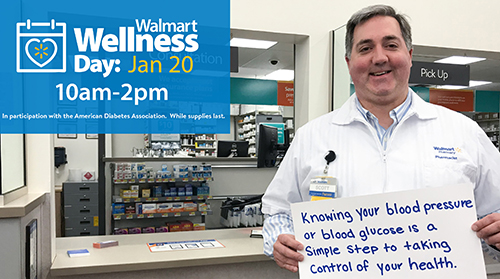As healthcare continues to expand outside of traditional environments, clinical laboratories must adapt to providers’ changing needs
Healthcare settings continue to pop up in non-traditional locations. For years, clinical laboratories and anatomic pathology groups have had to adopt to a changing healthcare landscape, such as the trend to move care out of hospitals and doctor’s offices to lower costs and improve access.
In some instances, treating patients in their homes is safer for patients’ health. (See Dark Daily, “Hospital-in-the-Home Shows Promise for Reducing Acute Care Costs; Medical Laboratories Face Uncertainties Concerning Expanding Services to In-Home Environments in Support of Care Providers,” May 2, 2018.) Similarly, receiving care at retail locations such as Rapid Clinics—including clinical laboratory procedures and testing—offers many advantages for busy patients. Dark Daily has reported on these trends as far back as 2011. (See Dark Daily, “More Medical Laboratory Testing Expected as Retail Clinics Change Delivery of Routine Healthcare Services,” October 24, 2011.)
It’s a win-win for healthcare organizations and patients alike that shows no sign of slowing down. Thus, it should come as no shock that retail giant Walmart (NYSE:WMT) would want to remain competitive in this high-value consumer market.
Walmart Continues Expansion into Healthcare Market
Walmart Care Clinics, which are primarily staffed by certified nurse practitioners, are currently operating in Georgia, South Carolina, and Texas, according to Healthcare Finance. Caregivers in those clinics are trained to diagnose and treat a wide variety of basic medical conditions, including:
- Managing chronic conditions;
- Performing lab tests;
- Administering vaccinations;
- Making referrals; and,
- Prescribing medications.
Now, possibly in a bid to compete with CVS and Walgreens, Walmart has announced plans to allocate part of an $11-billion remodeling project to include private consultation rooms in hundreds of its store pharmacies. These rooms will allow customers to have confidential discussions about their medications and healthcare with pharmacists and other pharmacy staff members.
The majority of the store renovations will occur in Florida and Texas where the company has allotted $477 million to remodel 82 stores and add 14 new stores.
Walmart Health App and Wellness Days
Another step Walmart is taking to compete in the healthcare space involves mobile software. In May, Walmart announced it was partnering with digital health company Sharecare to provide employees and community members with access to the Sharecare mobile healthcare app. The app enables users to complete personalized health profiles and track their health.

Walmart Wellness Days are a quarterly in-store event designed to educate community members on ways to make positive changes in their health. Might clinical laboratories one day be performing medical laboratory and pathology testing ordered by physicians and nurse practitioners located in retail Walmart pharmacies? (Photo copyright: Walmart.)
“Walmart is committed to helping our associates, their families, and communities to improve their overall wellbeing through wellness programs,” Jacqui Canney, Executive Vice President and Chief People Officer at Walmart, stated in a press release. “Partnering with Sharecare will provide our associates additional tools to inspire them on their wellness journey, help our programs continue to grow, and be a force for change in the communities we serve.”
Sharecare sees this relationship as both disruptive and transformative, not just for a company’s employees and customers, but for the entire nation.
“As we have learned from our research through the Gallup-Sharecare Well-Being Index, a person’s holistic wellbeing is defined by five essential elements—purpose, social, financial, community, and physical—and when those elements are in alignment, individuals and places exhibit greater adaptability to change, resiliency, and productivity in the workplace, among other benefits,” noted Dan Witters, Research Director for the Gallup-Sharecare Well-Being Index, in the press release. “As the nation’s single largest employer with more than 1.5 million associates, Walmart and Sharecare have the potential to disrupt the status quo of workplace wellness and transform the health not only of the communities in which Walmart operates, but also, ultimately, our country.”
Lofty expectations, to be sure. Nevertheless, for clinical laboratories to remain competitive, they must be prepared to adapt and serve healthcare providers in any location. Increasingly, these caregivers are finding themselves treating patients outside of traditional healthcare environments in locations convenient to healthcare consumers, such as retail environments.
—JP Schlingman
Related Information:
Walmart Signals Continued Interest in Healthcare Space Through Remodel of Pharmacies



